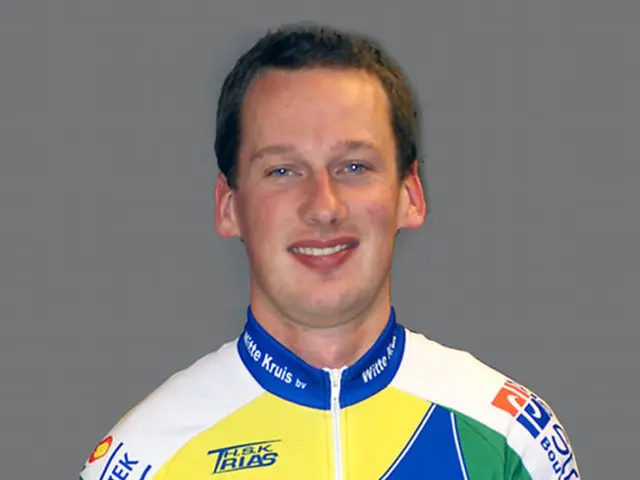Sports Broadcaster Wagers Big Winning Sum of €5000, Emphasizing Potential Gambling Risks of Bookmakers
Fresh Take:
Ireland is now stepping into the 21st century with its own gambling regulator, the Gaming Regulatory Authority (GRA), officially established amidst the cheers of supporters earlier this month. This bold move promises to bring a much-needed overhaul to Ireland's gambling sector, taking over responsibilities for licensing and supervision.
Recent months have seen a journalist delve into the legislative changes that paved the way for this transformation, a bill which, ironically, faced fierce opposition from the industry. During a 15-minute segment on RTE Prime Time, Conor Wilson could be seen effortlessly creating accounts on gambling sites and snagging free bets without having to verify his identity. Intriguingly, he wagered €5 ($5.50) on Golden Ace in the Cheltenham Champion Hurdle race, using a welcome free bet at odds of +5000. The exciting outcome? Golden Ace won the race, resulting in a staggering €322.50 ($351.60) payout for Wilson, leaving viewers flabbergasted.
Later in the segment, Wilson engaged in a conversation with the new GRA Chief Executive, Anne Marie Caulfield, who outlined the impending restrictions on free bets. According to her, sportsbooks will no longer be able to entice customers with personalized free bets; instead, they must be open to everyone.
A mental health expert then shed light on the intricate connection between gambling and addiction, explaining how it's more prevalent than previously believed.
These changes next to Ireland's shores follow the footsteps of mature regulatory jurisdictions like Great Britain and Sweden, aiming for a harmonious blend of modernizing the industry while enhancing consumer protection measures. Here's a glimpse of what to expect from the updated gambling scene in the Emerald Isle:
Key Reforms and Modernization Efforts:
- Advertising and Promotional Restrictions:
- The ban on personalized offers will prevent operators from targeting specific customers, such as frequent gamblers exhibiting signs of addiction, with tailored incentives[2]. Instead, offers will be available to everyone[2].
- Social media restrictions will limit advertisements, and adults will have to opt-in to receive marketing communications[2].
- Advertisements will be banned between 5:30 AM and 9 PM to minimize children’s exposure[2].
- Addiction Prevention Measures:
- A national self-exclusion system will be introduced, allowing individuals to block access to specific operators or all gambling activities for varying durations[2]. The Gambling Regulatory Authority of Ireland (GRAI) will develop this register, which will integrate with licensed operators’ systems.
- A strong focus on public health is apparent, with the GRAI placing emphasis on protecting vulnerable groups and combating addiction[2][5].
- Modernization Efforts:
- The GRAI plans a phased licensing approach, with applications for B2C licences (remote/in-person betting, gaming, lotteries) set to open in December 2025, followed by remote-only gaming licences in early 2026[1][5]. B2B licences (platform providers, odds compilers) will be introduced later, allowing for a smooth transition for operators[5].
- The GRAI is open to feedback from the industry regarding licensing processes, the Social Impact Fund (to address gambling harm), and operational standards[1][4].
- Instead of the fragmented regulations of old, the Act introduces a centralized framework, mandating compliance checks on advertising, money laundering, and problem gambling safeguards[5][2].
- The Gaming Regulatory Authority (GRA) in Ireland, established recently, has taken over the responsibilities for licensing and supervision in the country's gambling sector, marking a significant change in its approach.
- With the ban on personalized offers, sportsbooks in Ireland will no longer be able to target specific customers with tailored incentives, as a measure to prevent addiction.
- The new Gambling Regulatory Authority of Ireland (GRAI) is planning a phased licensing approach, with applications for B2C licenses opening in December 2025, followed by remote-only gaming licenses in early 2026.
- A national self-exclusion system will be introduced in Ireland, allowing individuals to block access to specific operators or all gambling activities for varying durations, as part of efforts to prevent addiction.
- The GRAI is working on a centralized framework that mandates compliance checks on advertising, money laundering, and problem gambling safeguards, as part of its modernization efforts.
- stakeholders in the industry, including sportsbooks and casino operators, can provide feedback to the GRAI regarding licensing processes, the Social Impact Fund, and operational standards for a smooth transition in the casino-and-gambling sector, with an emphasis on enhancing consumer protection measures.










